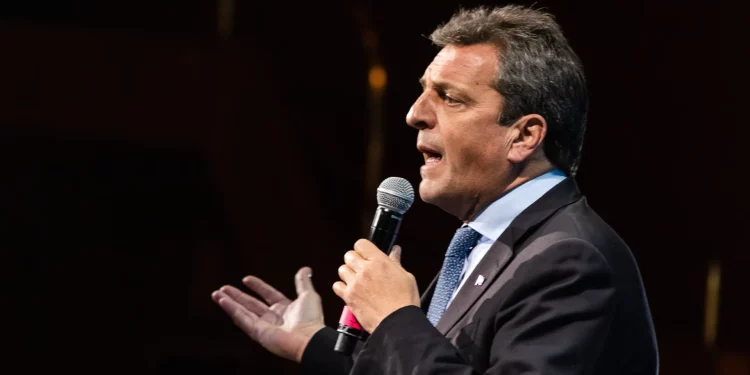As Argentina heads towards a presidential election in October, the nation is grappling with a major economic crisis, with a soaring inflation rate of 124%. To address the financial pain and garner electoral support, the ruling party has unveiled radical measures, but experts are already sounding alarm bells about the potential impact on the already high fiscal deficit.
The Argentine government, facing a dire economic situation, has taken the radical step of eliminating all income taxes for the majority of formal workers. While the Ministry of Economy had already granted a temporary exemption to approximately 99% of the workforce through decree, the newly approved law will permanently abolish income taxes. Only those earning more than $5,057 per month will continue to pay income tax. This segment constitutes a tiny proportion of the workforce.
What exactly are the new measures?
The Senate, in a hard-contested vote of 38-27, gave its nod to this bold initiative, strongly endorsed by Argentina’s Economy Minister and presidential candidate, Sergio Massa. President Alberto Fernandez is expected to sign this legislation into law soon. However, it is essential to keep in mind that the incoming government, set to take office on December 10, may yet choose to reverse this change.
While the tax cuts may appear as a move to offer relief to a population struggling under the weight of inflation, it’s essential to analyse the broader economic picture. The Argentine government is simultaneously planning to provide payouts to informal workers in October and November in the form of two welfare checks of $268 each. These payments will be funded through taxes on banks and corporations that are believed to have benefited from the currency devaluation that occurred on August 13.
The government’s commitment to these subsidies will strain its budget, with an estimated cost of $5.7 billion. To finance this expenditure, the government is expected to rely heavily on central bank money printing, a move that could increase inflation further. The increase in spending, combined with the loss of revenue due to the elimination of income taxes, raises concerns about Argentina’s $44 billion bailout with the International Monetary Fund (IMF). Sergio Massa, who had earlier vowed to implement austerity measures in August, is now pushing for fiscal expansion instead in a 180-degree turn typical of Argentine politics.
Argentina is already in dire economic straits
Argentina’s current economic situation is a massive challenge already. Inflation has reached alarming levels, driven in part by a major devaluation of the peso, and the nation is grappling with a recession caused by a three-year drought that has hit agricultural exports hard. Additionally, the country faces increasing levels of poverty, with more than 40% of the population living below the poverty line. Argentina also holds the dubious distinction of being the largest debtor to the IMF, with a large outstanding balance remaining from a $57 billion loan in 2018. Stringent currency and capital controls and a falling peso on the black (unofficial) market further exacerbate the situation.
The upcoming presidential election is crucial, and the leading candidates have extremely divergent views on how to address the crisis. Javier Milei, an anti-establishment economist, advocates for the dollarisation of the economy to combat inflation, while Patricia Bullrich proposes a dual currency system to protect monetary sovereignty. Sergio Massa, on the other hand, is focussing on stabilising the production economy through increased agricultural exports.
As the election approaches, the fate of Argentina’s economy hangs in the balance. The candidates’ positions on taxes, exports, and their approaches to the nation’s foreign debts will decide the country’s economic destiny. The potential for default remains a looming concern, meaning that global players will be watching the world’s most confusing economy very closely in the coming months.

















